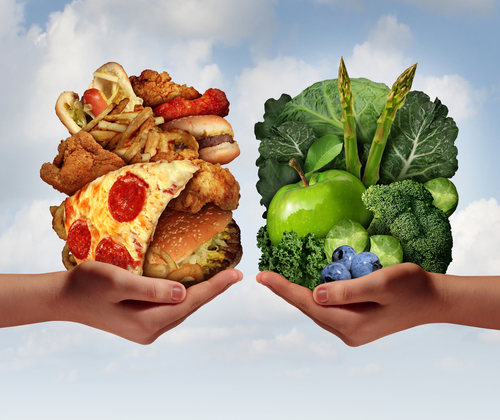Are Empty Calories Bad For You?
Short answer
Yes, empty calories are bad for you. They have no nutritional value and can create numerous health concerns.
Category 'F' is for things that fail to bring anything beneficial to the table, and are very harmful to your health. We recommend completely avoiding anything in this category. Long-term side effects of 'F' items are usually very serious.
View Full Grading System
Category 'A'
Very healthy and numerous health benefits. Side effects are rare. Things rated an 'A+' are typically necessary for survival (for example, water).
Very healthy and numerous health benefits. A few harmful qualities may be associated, but only under certain circumstances such as an allergic reaction.
Very healthy and numerous health benefits. Harmful qualities may be associated, but aren't usually serious.
It is important to note that even the best things in life can become bad in immoderate amounts. So, although something may be rated an 'A+', overconsumption/overdoing can bring unwanted effects.
Category 'B'
Very beneficial to your health. Things rated a 'B+' may have a few harmful qualities to pay attention to.
Overall beneficial to your health. Things rated a 'B' may have some harmful qualities to pay attention to.
More beneficial to your health than not. However, harmful qualities are most likely associated and shouldn't be overlooked.
The main difference between category 'A' and category 'B' is the harmful qualities typically present in 'B' items. Serious side effects are usually uncommon, but are still possible and should be taken note of.
Category 'C'
Both beneficial and harmful qualities associated. Things rated a 'C+' are typically a bit more on the beneficial side. Still, moderation is important.
A fairly even ratio of beneficial and harmful qualities. Moderation is important. Very general topics that can lean towards both sides of the spectrum will be placed here as well. Rice, for example, can be good or bad depending on the type.
More harmful than beneficial. Side effects are common, especially when consumed/done excessively. Moderation is very important.
Category 'C' usually denotes to both good and bad qualities. When it comes to this category, it is important to keep this word in mind: moderation.
Category 'D'
Harmful to your health. Although benefits may be associated, the bad most likely outweighs the good. Moderation is very important.
Harmful to your health. A few benefits may be associated, but the bad outweighs the good. Moderation is extremely important.
Harmful to your health. Very few, if any, benefits are present. Things in this category should be avoided as much as possible.
Category 'D' is typically for things that are more harmful than beneficial. While consuming/doing something unhealthy once in a blue moon shouldn't hurt, we definitely recommend eliminating 'D' items as a regular part of your routine/diet.
Category 'F'
Category 'F' is for things that fail to bring anything beneficial to the table, and are very harmful to your health. We recommend completely avoiding anything in this category. Long-term side effects of 'F' items are usually very serious.
Category 'N'
'N' stands for neutral. Things placed into this category are generally (a) neither good nor bad for you, or (b) lack the necessary evidence to reach any conclusions.
Long answer
Empty calories are essentially calories that contain no nutritional value. They hide in many of the foods made from sugar and/or solid fats. Many of these foods are heavily processed and carry a long shelf life. Though convenient and inexpensive, the consequences to over-consumption of empty calories foods are dangerous. Examples of foods with a high level of empty calories include candy, baked goods, chips, fried foods, butter, ice cream, pizza, syrups, and the majority of snack items found in vending machines.
Empty calories often sneak their way into diets through beverages, as well. Sugary sodas, specialty coffee drinks, sports drinks, alcoholic beverages, and juices with added sugar are major culprits in the sabotage of a clean diet. In an effort decrease the consumption of empty calories, many people opt to substitute the beverages with artificial sugar substitutes. Though this may appear to be a good solution, artificial sweeteners have also been linked to numerous adverse side effects and should be avoided. Unsweetened herbal teas are an excellent alternative to sugary beverages because they generally contain natural herbs that benefit the body and are free from meaningless calories. One serving per day of organic, 100% fruit juice (not from concentrate) offers another delicious alternative to the above-mentioned beverages.
Over-indulgence of foods and beverages made from empty calories create a high risk of obesity, high cholesterol, diabetes, heart disease. They have also been linked to depression, anxiety, and other mental health disorders. Though these foods and beverages may be enjoyed on special occasions, it is crucial that your diet be full of calories from nutrient-dense foods, such as colorful fruits and vegetables, lean meats, and whole grains.
Possible short-term side effects
Possible long-term side effects
- obesity
-
diabetes
-
high cholesterol
-
heart disease
-
sugar addiction
-
hypertension
-
depression
-
anxiety
Healthier alternatives
- real calories (nutrient-dense foods)
Please turn your Ad Blocker off to see this content. Thank you!
Thank you for your feedback!
Written by DeeAnne Oldham
Published on: 12-29-2015
Last updated: 12-10-2016
Thank you for your feedback!
Written by DeeAnne Oldham
Published on: 12-29-2015
Last updated: 12-10-2016

 Approved by
Approved by 















